Behind-the-scenes at Lancaster general election
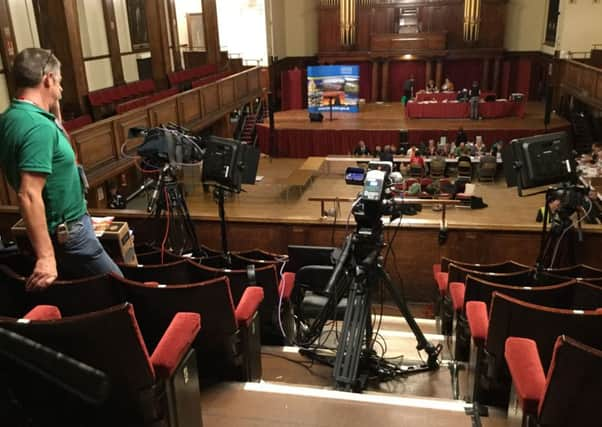

When Lisa Vines found out there was going to be a snap general election her mouth dropped open – and then she set to work.
Lisa is the Lancaster City Council elections manager and her job on Thursday and Friday was to make sure election day and night ran like clockwork.
Advertisement
Hide AdAdvertisement
Hide AdAlthough Theresa May’s announcement in April of the snap election was a shock, Lisa was already well-prepared.
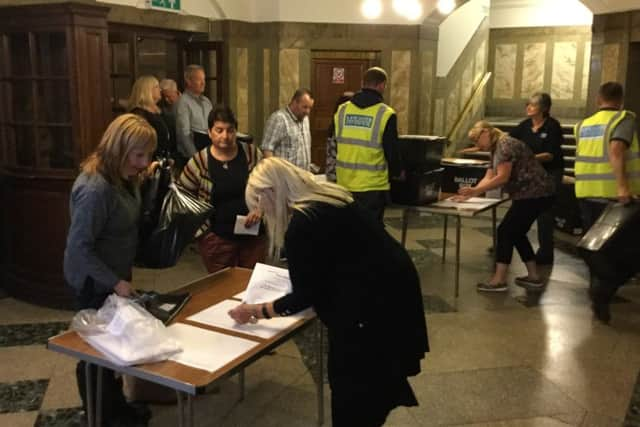

She and her team of three full-time staff work all year round on election-related matters.
“As the Lancashire County Council elections were running in May, a lot was already in place,” she said.
“Every day, there’s lots of organising for elections.”
Aside from planning and running general and local elections, the team has other duties too.
Advertisement
Hide AdAdvertisement
Hide Ad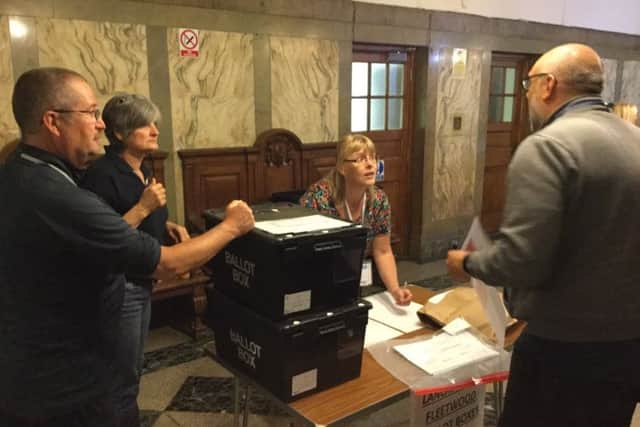

“We also pull together the electoral register, which we have to produce every year by December 1,” she said.
“We also get involved if a parish council has a vacancy; Morecambe Town Council is a prime example. We do neighbourhood planning and community governance. We have just created a new parish in Aldcliffe-with-Stodday, that was a year-long process. So there’s a lot more to it than just elections.”
Running a general election costs money. Lancaster City Council receives £140,000 per constituency from the government to pay for all the various expenses which come with organising election day at local level.
One of the big challenges for Lisa is recruiting extra staff.
Advertisement
Hide AdAdvertisement
Hide Ad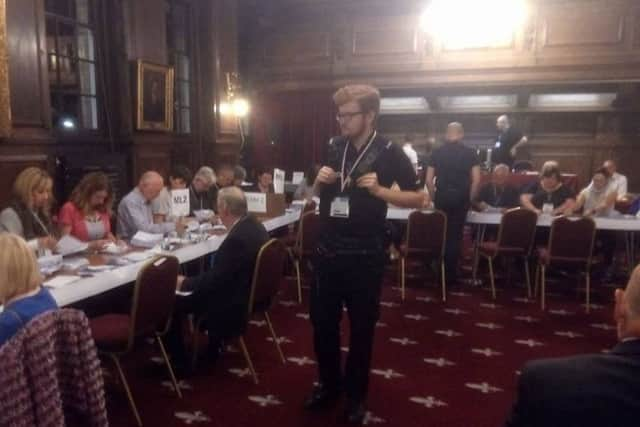

Additional employees are needed to carry out the many different tasks on the day, including counting votes and manning polling stations.
“We have a database of staff we can call on and we normally write out to them giving four months’ notice,” she said.
“The county elections count was during the day time but the general election was through the night, so we couldn’t use the same staff who were on duty during the day, they would have been exhausted. In total we recruited 120 counters for the night.”
There were 500 staff working on the election in Lancaster. All were paid employees, not volunteers.
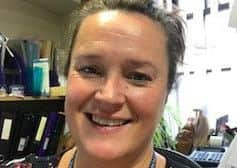

On June 8 itself, Lisa arrived at work at 6am.
Advertisement
Hide AdAdvertisement
Hide AdThere are 128 polling stations across the two constituencies – 63 in Lancaster and Fleetwood, and 65 in Morecambe and Lunesdale – and she has to resolve any issues which may transpire at any of them.
“Throughout the day I’m on the phone answering questions, co-ordinating between the acting returning officer, polling station inspectors and staff,” she said.
“Thankfully nobody tried to bring a horse into a polling station or anything like that!”
Towards the end of a long 15 hours of the polls being open, Lisa went into what she calls ‘count mode’.
Advertisement
Hide AdAdvertisement
Hide AdAt Lancaster Town Hall, the count was split across two rooms.


Lancaster and Fleetwood votes were counted in the Ashton Hall while the totting up of Morecambe and Lunesdale votes took place in the smaller banqueting suite.
Long tables were set up for staff to sit behind, ready for the ballot boxes to arrive.
“Before the polls closed at 10pm, we started to brief stewards and security people on what would happen when the ballot boxes came in,” said Lisa.
Advertisement
Hide AdAdvertisement
Hide Ad“We have a parking system for the cars bringing the boxes. We have to make sure people aren’t parked where they shouldn’t be.
“Usually the first boxes start arriving at 10.10pm. The last ones arrived from the Fleetwood area at about midnight.”
As the boxes arrived, security was tighter than usual, as it had been throughout the entire day. This was due to the recent terror attacks in Manchester and London
“We usually get visits from PCSOs (to polling stations) during the day but this time police said each polling station had a minimum of five visits,” said Lisa.
Advertisement
Hide AdAdvertisement
Hide Ad“That’s more than they’ve ever had before. They were keeping a close watch.
“On the night, we had two officers in each count room. That was unusual. There were also other officers on duty who were there if we needed them.”
A team of ‘lifters and shifters’ brought the boxes full of ballot papers off vehicles, into the town hall and then into the count rooms, where teams were ready and waiting, first to verify the boxes and then to begin the long counting process.
Meanwhile the Lancaster City Council communications team helped the assembled media, including myself and Gayle Rouncivell from the Lancaster Guardian, to set up in a balcony overlooking the Ashton Hall count, ready to cover the night’s drama.
Advertisement
Hide AdAdvertisement
Hide AdFor Lisa and her team, the pressure was on to declare the results as quickly and accurately as possible. “We watch with bated breath things happening across the country.
“We’re all extremely tired, by that point.
“We’ve all worked many hours in the run-up and mistakes can be made. We’re only human. We’re at the edge of what we can cope with.
“You’re lucky if you do anything less than a 12 hour day in the run-up.
“The eyes of the nation are on you. You get criticised if you don’t declare early enough. But you’ve got to be accurate. If that takes an extra hour I’d rather do that than declare too quickly.”
Advertisement
Hide AdAdvertisement
Hide AdThere was indeed a spanner in the works in the early hours of Friday when the wrong turnout figure was given for Morecambe and Lunesdale.
It was calculated at 82.5 per cent, which would have been the highest in the history of the seat.
A council representative gave the information to a stunned media who began to report it, only to be told moments later that the actual figure was 68.4 per cent.
“There was an issue with the spreadsheet,” said Lisa.
“We rely on them to do the calculations for us. There was an error but we were able to correct it.”
Advertisement
Hide AdAdvertisement
Hide AdThankfully there were no such issues with the actual results.
The first declaration (Lancaster and Fleetwood) came at around 4am on Friday, several hours earlier than in 2015 when there were also local elections to contend with.
“That was my first election as manager, and nothing could be as bad as that,” said Lisa. “That was so complex because there were so many ballot papers, that’s why it took so long to declare.
“This time it was quite surprising we finished as early as we did.”
Advertisement
Hide AdAdvertisement
Hide AdAfter the Morecambe and Lunesdale result was declared and political winners and losers, and their entourages, left to either celebrate, lick their wounds or go to bed, the council staff began to pack away.
Lisa eventually got home at 10am on Friday.
But an elections manager’s work is never done. And with a hung Parliament, a fragile political situation and talk of another election in the not-too-distant future, Lisa and her team are on standby in case they need to do it all again.
“If there’s another election, we’re ready,” she said.
“We’re always ready.”